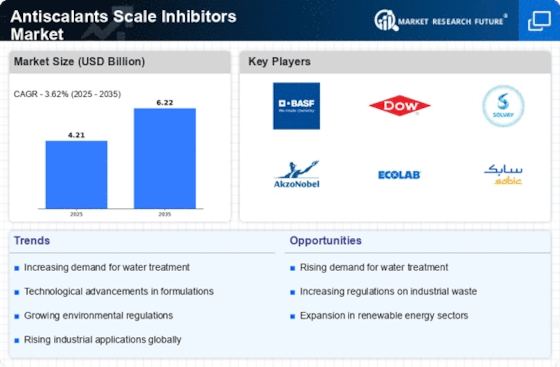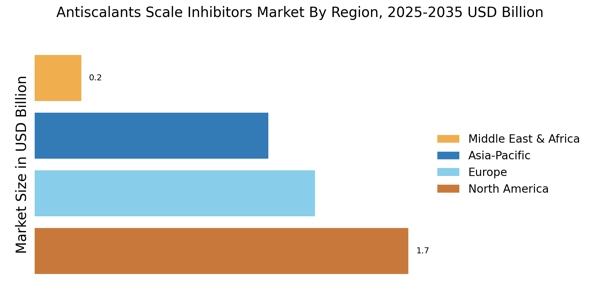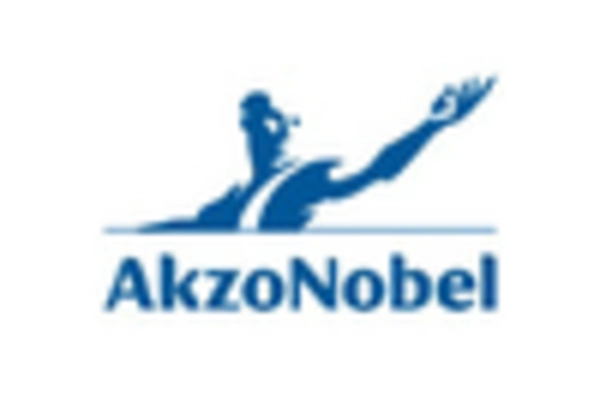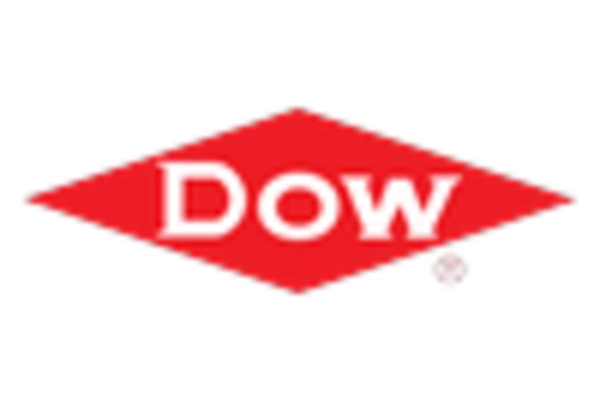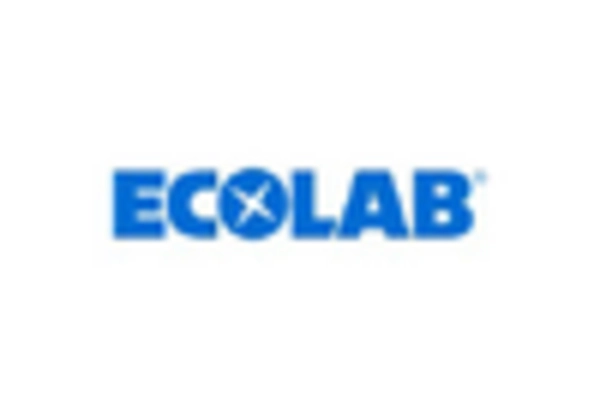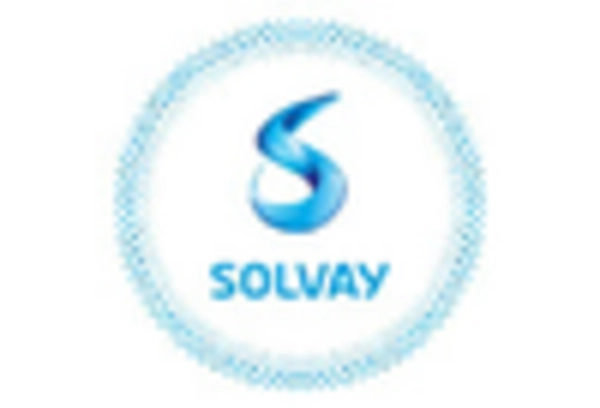Increasing Water Scarcity
The rising concern over water scarcity is driving the Antiscalants Scale Inhibitors Market. As freshwater resources become increasingly limited, industries are compelled to adopt advanced water treatment solutions to ensure sustainable operations. Antiscalants play a crucial role in preventing scale formation in water systems, thereby enhancing the efficiency of water usage. According to recent data, the demand for water treatment chemicals, including antiscalants, is projected to grow at a compound annual growth rate of approximately 6% over the next few years. This trend indicates a significant opportunity for the Antiscalants Scale Inhibitors Market, as companies seek to optimize water management practices and reduce operational costs associated with scale-related issues.
Growth in Industrial Applications
The expansion of various industrial sectors is a key driver for the Antiscalants Scale Inhibitors Market. Industries such as oil and gas, power generation, and manufacturing are increasingly utilizing antiscalants to manage scale formation in their water systems. The oil and gas sector, in particular, has witnessed a surge in the use of antiscalants to enhance the efficiency of water injection processes. Market data suggests that the demand for antiscalants in industrial applications is expected to grow steadily, driven by the need for improved operational efficiency and reduced maintenance costs. This trend indicates a robust opportunity for stakeholders within the Antiscalants Scale Inhibitors Market to cater to the evolving needs of diverse industrial applications.
Regulatory Compliance and Standards
The Antiscalants Scale Inhibitors Market is significantly influenced by stringent regulatory frameworks aimed at protecting water resources and ensuring environmental sustainability. Governments and regulatory bodies are increasingly enforcing standards that require industries to minimize scale formation in water systems. Compliance with these regulations often necessitates the use of effective antiscalants, which can prevent scale buildup and enhance the longevity of equipment. As industries strive to meet these compliance requirements, the demand for antiscalants is expected to rise. This regulatory push not only promotes the adoption of innovative scale inhibitors but also fosters a competitive landscape within the Antiscalants Scale Inhibitors Market, encouraging manufacturers to develop more efficient and environmentally friendly formulations.
Technological Innovations in Water Treatment
Technological advancements in water treatment processes are reshaping the Antiscalants Scale Inhibitors Market. Innovations such as the development of more effective and eco-friendly antiscalant formulations are gaining traction among industries seeking to improve operational efficiency. For instance, the introduction of biodegradable antiscalants is appealing to companies aiming to reduce their environmental footprint. Furthermore, advancements in application techniques, such as automated dosing systems, enhance the effectiveness of antiscalants in preventing scale formation. As these technologies evolve, they are likely to drive growth in the Antiscalants Scale Inhibitors Market, as businesses increasingly recognize the value of investing in advanced water treatment solutions to mitigate scale-related challenges.
Rising Awareness of Water Treatment Solutions
There is a growing awareness among industries regarding the importance of effective water treatment solutions, which is positively impacting the Antiscalants Scale Inhibitors Market. As companies become more cognizant of the implications of scale formation on operational efficiency and equipment longevity, the demand for antiscalants is likely to increase. Educational initiatives and industry conferences are contributing to this awareness, highlighting the benefits of using antiscalants in various applications. Furthermore, as industries strive for sustainability and efficiency, the adoption of antiscalants is seen as a proactive measure to address scale-related challenges. This heightened awareness is expected to drive growth in the Antiscalants Scale Inhibitors Market, as more companies seek to implement effective water treatment strategies.


